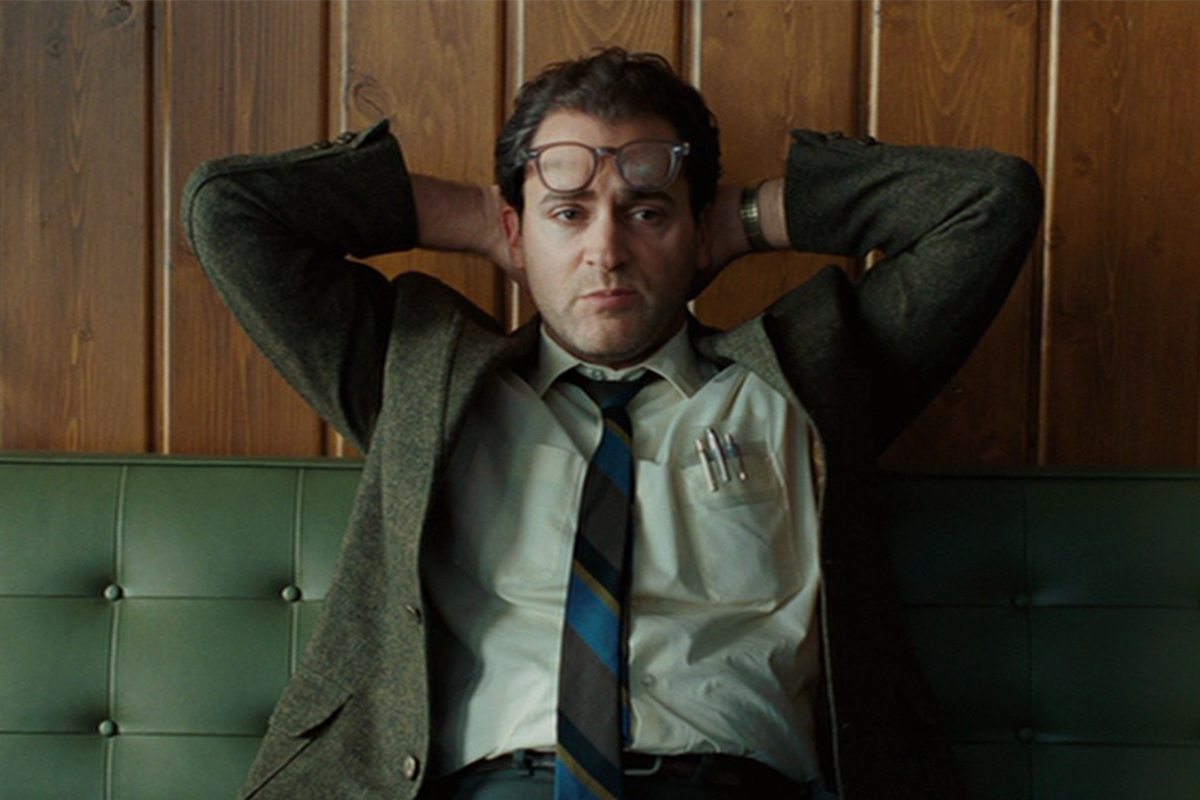The Coen brothers’ 2009 film A Serious Man is a fantastic watch. Last October, Elana Spivack wrote about why watching the movie is her favorite Yom Kippur tradition. Like she said, the extremely Jewish movie is great to watch any time (and is currently streaming on Netflix, FYI) but recently, as we all hunker down in our homes thanks to the spread of coronavirus, I’ve been thinking about how the movie has a lot to teach us about how to handle a pandemic of this scale.
While revisiting it recently, I came away with three lessons that the movie taught me. Maybe it’s the perfect time for you to watch, too?
*Spoilers ahead*
1. Embrace the absurdity.
A Serious Man is chock-full of characters who are trying to understand the universe. Between religion (the way the characters discuss Judaism), physics (the subject which the protagonist Larry teaches), and probability (Uncle Arthur’s endeavor), there is a recurring topic of making sense out of the world in order to predict the future. But in the movie, none of these work. The three rabbis can’t (or don’t) help Larry, physics is incomplete, and Uncle Arthur does not exactly lead an aspirational life.
If trying to predict the universe is doomed to fail, what works? In this movie, embracing the absurdity of our lives actually makes them better. In A Serious Man, the second rabbi is played off as a joke. He tells a strange story about a goy’s teeth, leading nowhere and telling Larry nothing. I don’t think that the rabbi actually thought the teeth story would apply to Larry’s struggle, but he thought it was interesting, and he got some joy from it. Larry might have enjoyed the story, too, but he was too caught up in his misfortune, too busy looking for answers.
If Larry had welcomed some amount of unpredictability into his life, everything would have been more manageable. He might have been able to talk to his wife or make a good judgement about the student’s grade. Or, if not, he could have at least enjoyed a strange story about a goy’s teeth.
With the coronavirus, our situation is absurd. Absurdly tragic. But for most of us, scrolling through news feeds and trying to know every possible thing about the virus will not cure the absurdity. There are always going to be more questions, and a lot of questions have scary or unsettling answers. Instead of trying to stay informed with every latest update, I am trying to stay present in my own life. I am focusing on the things I enjoy, like Jewish learning and watching Michael Schur shows (currently Brooklyn Nine-Nine). Coronavirus is going to go away, but we don’t know when, how, or what will happen in the meantime. Trying to solve the puzzle of the universe feeds anxiety, and it rarely turns out to be productive in the long run.
2. Be proactive and not passive.
Over and over throughout the movie, Larry says the memorable line, “I didn’t do anything!” There are two different ways I find myself interpreting this. First, he thinks bad things happen as punishment. He cannot possibly understand why this many terrible things would happen to someone who never did anything seriously wrong. The lesson I take from this interpretation is somewhat related to my first point: There do not have to be punishments and rewards based on behavior, even in a religious system. A just God could still cause pain and suffering, and it could give an individual a meaningful struggle, cause them to avoid a more serious pain in the future, or serve any number of purposes other than punishment. So yes, Larry didn’t do anything, but he is also missing the point. He should be trying to work through the struggle instead of just lamenting it.
That brings me to my other interpretation of Larry’s refrain. Larry thinks he should just avoid doing bad things in order to avoid bad things happening to him. Disaster without a direct or traceable cause shatters his worldview, yet he remains a passive character throughout his own story. The movie is made up of moments in Larry’s life getting worse and worse. But throughout the whole film, Larry never really does anything! He never sits down with his wife, alone, to talk through the divorce. He never confronts his boss about the bribe and asks for real career advice. And he never makes any active effort to let the small things, like disturbing neighbors, roll off his back. Any time Larry says that he didn’t do anything, he is admitting to taking a passive role in his own story.
In our current pandemic, it’s way too easy to stay passive. We do our part by staying home, which reinforces the idea that we aren’t supposed to do anything. But for me to be passive, to lament about why this is happening, or to just be unproductive, would be bad for my mental health. To sit at home and wonder what we did to deserve this would deny me the ability to be there for my friends and community, and it would only add to my anxiety.
3. It really could always be worse.
The last lesson I learned from A Serious Man is that there are always more ways for things to fall apart. By the time Larry sees the first rabbi, it looks like he must be at his low point. The same is true for the second and third rabbis, even though each time everything seems far worse than it was before. The story ends with both Larry and his son in situations likely to lead to death, and both of those disasters are completely unrelated to anything else that happens in the story.
From my own position, my coronavirus situation could be a lot worse. I could be seriously ill or have a family member with a serious illness. I could live in a house not really suited for all five members of my immediate family, or I could have a strained relationship with my family. What if I had a close relative in jail to be worried about? What if I didn’t have a house or a support network? I know there are a number of common coronavirus-related problems that I didn’t even mention that could also make my situation worse. Through all this, I need to remember to be grateful for all the things I have.
I was an infant during 9/11, so this is the largest world event to happen in my memory. I don’t think it ever really feels good to live through a historical moment because it almost always involves uncertainty. But we will get through this. Joel and Ethan Coen taught me how to get through it a little better. I hope they are able to help you, too.
Header Image: screencap of A Serious Man.



